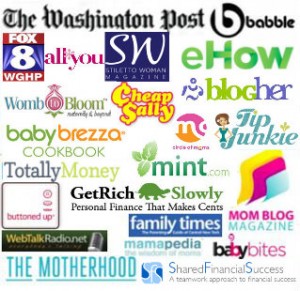This is a guest post from Mr. James Adams. I hope you enjoy it and please feel free to leave comments on additional ways you’ve found to save money in your home office.
Each home office is created for the purpose of meeting a specific need for the person who must accomplish tasks. Some home offices are simply a place for mail to rest until the bills are paid. Other home offices are the launching pad for businesses that will move to a commercial space after a certain growth milestone is reached. Efforts spent saving nickels and dimes are essential in the first scenario, but not as important when the business is flourishing. Every home office owner will benefit from approaching the home office through a series of decisions that guide all purchasing decisions.
1. Evaluate The Office Purpose
If the home office will be used to conduct business with clients, the office entrance and furnishings must meet very high standards of cleanliness, safety, and professionalism. A home office that will be used exclusively by one person can be very casual and convenient without the emphasis on image and access.
2. Write Three Guiding Principles
Based on the established purpose of the office, every home office owner can write down three statements concerning costs. For example, “I will compare prices from three sources prior to purchasing furniture, supplies or services.” Another example might be, “I will purchase second-hand goods whenever possible to save money.”
3. Set A Budget
Actual dollar amounts should be assigned to the office set-up efforts which will include phone and internet connections, lighting, office furniture, filing supplies, and security measures. If a desk constructed from an old door resting on two file cabinets is all that is required, the budget should reflect this approach. When the home office must present a professional image, more money will be required to create a welcoming environment for clients.
4. Assess Value Of Time
Based on the anticipated income of the business, the value of the business owner’s time must be calculated. The importance of this detail cannot be overstated because choices must be made between completing tasks personally and hiring craftsmen and office assistants. If someone else’s time can be purchased for less money, help others by hiring them for their services.
5. Buy Quality Second-Hand
There are many sources of high-quality second hand goods, including: electronics, computer equipment, office supplies and furniture. When the office can be furnished over time, beautiful furnishings can be acquired for a fraction of the cost. When businesses close or move, they will sell equipment and supplies at great prices.
6. Enlist Help Appropriately
Saving money can also create income streams for people who have valuable skills. Building a custom piece of furniture might be a great weekend project, but it might be faster to hire a gifted woodworker. When printing a large print job, investigate the cost of hiring out the job to save your time and supplies.
7. Beware Of Costly Bargains
Free software might be a great asset for task completion, but some of that software can bring problems to your computer. Understand the difference between inexpensive printer ink and cheap printer ink. Some computer problems are caused by faulty cables and unreliable power sources.
8. Develop Internet Knowledge
Many great computer services are available on the internet, and the business owner with some internet savvy can save money on virtually anything. Powerful websites are available for accounting software and other business functions that are available for free or for a minimal charge.
9. Understand Every Actual Cost
Utility rates differ between daytime and evening, and every business owner should understand the benefit of positioning the home office to use natural light. Prices for supplies and services must be available to make decisions concerning outsourcing functions such as printing documents and photos so that money-saving decisions are easier.
10. Save But Do Not Skimp
Wise money spending means that needs are met, but waste is avoided in every category. Cheap paper will cause printer jams that can cause costly repairs. Cheap ink will not produce appealing documents because the ink will smudge and bleed. Cheap office furniture made from particleboard can be dangerous under the ever-increasing weight of books and files.
Every home office purchase must be weighed against numerous factors to ensure wise use of every dollar. Even the most lucrative business must restrain office expenses in favor of directing funds to areas of the business that will generate revenue. Waiting to make certain purchases will yield better value, but delay in other areas can cause additional expense because of the trends in commodity prices. Follow the three guiding principles written in step 2 to make wise purchases every time.
Currently employed by a company in Manchester that is mostly made up of printer cartridge and toner experts, James Adams is the office expert on HP cartridges in the office and can usually be found writing about them on the internet.













Speak Your Mind